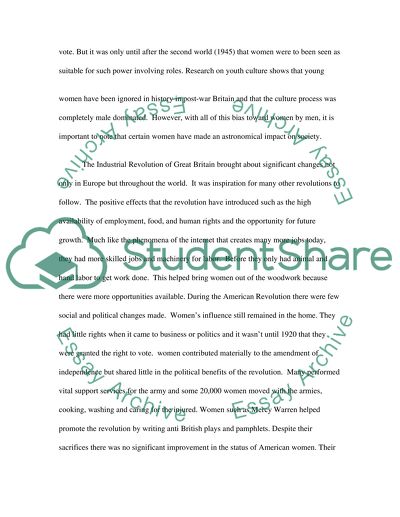Cite this document
(“The Power of Women or Lack of Power of Women Early Revolutions Essay”, n.d.)
Retrieved from https://studentshare.org/sociology/1506740-the-power-of-women-or-lack-of-power-of-women-early-revolutions
Retrieved from https://studentshare.org/sociology/1506740-the-power-of-women-or-lack-of-power-of-women-early-revolutions
(The Power of Women or Lack of Power of Women Early Revolutions Essay)
https://studentshare.org/sociology/1506740-the-power-of-women-or-lack-of-power-of-women-early-revolutions.
https://studentshare.org/sociology/1506740-the-power-of-women-or-lack-of-power-of-women-early-revolutions.
“The Power of Women or Lack of Power of Women Early Revolutions Essay”, n.d. https://studentshare.org/sociology/1506740-the-power-of-women-or-lack-of-power-of-women-early-revolutions.


